#feuerbach
Text
The introduction of the Napoleonic Code in Bavaria

Probably the best codification work of the Rhine Confederation period was the draft of a "General Civil Code for the Kingdom of Bavaria" from 1808/09, which was essentially based on the suggestions of Paul Johann Anselm von Feuerbach. By starting codification work, the Bavarian King Maximilian IV wanted to give in to Napoleon's urging to introduce his code in Bavaria as well. In a report for the Ministry of Justice in 1808 "on the manner of introducing the Code Napoleon in a German country", Feuerbach highlighted the main ideas of the Code Napoleon: freedom of the person; legal equality of subjects; equality of laws for all citizens of the state ; Freedom of property as well as independence and independence of the state from the church in all civil matters. For him, the Napoleonic Code was a result of the French Revolution: "It was the purpose of French legislation, on the one hand, to completely end the Revolution, on the other, to perpetuate the beneficial results of the Revolution".
Anyone who wants to destroy the basic ideas of a code of law through modification kills “the truly spiritual life of it and turns the living body into a corpse. In the modification retort, on which the inconvenient spiritus rector was supposed to evaporate, nothing more than a caput mortuum would ultimately remain, which would hardly be worth keeping. Precisely those parts of French legislation which contradict our existing German principles are its brightest points." When the discussions of the draft in the Privy Council were almost completed, the conservative aristocratic opposition brought down the proposal in 1809/10. Particularly because of the changes to mortgage law proposed by Feuerbach, the Bavarian draft represents a German version of the Napoleonic Code that is quite equal to the French original. Feuerbach paid particular attention to the linguistic version: insofar as a regulation of the Napoleonic Code should be retained, he was concerned with translating the French original into a "pure German legal language, not tainted by any provincialisms, possibly with the same advantages." However, this should not obscure the fact that the Commission has often exceeded the limits of mere translation. The most important change was that almost all traces of the French judicial constitution were erased from the draft. Article 530 of the Code Napoléon was also modified so that the replacement of perpetual basic pensions should only be permitted with the consent of both parties. The inheritance law was based on the succession order of Austrian law. The property law, which was almost completely ignored by the Napoleonic Code, was regulated in a separate chapter.
Source: Werner Schubert, Der Code civil (Code Napoléon) in Deutschland und das Reichsgericht
[Bold italics by me]
#Paul Johann Anselm von Feuerbach#Feuerbach#napoleon#napoleonic era#king Maximilian I#king Maximilian iv#napoleon bonaparte#napoleonic#first french empire#french empire#19th century#Bavaria#Germany#history#napoleonic code#Napoleon’s reforms#confederation of the Rhine#Rhine confederation#1800s#french revolution#Revolution#napoleonic wars#Werner Schubert#civil code#code civil#law#reforms#laws#civil law#napoleonic reforms
13 notes
·
View notes
Text
God isn't real. Sorry.
#communism#socialism#marxism#leftism#leftist#communist#socialist#marxist#anti capitalism#dismantle capitalism#atheist#marxism is atheist#secular#secularism#antitheist#antitheism#anti theist#the church is fascism#marx#karl marx#lenin#vladimir lenin#leninist#leninism#soviet union#state atheism#state atheist#secularist#feuerbach#religion is a scam
6 notes
·
View notes
Text
machiavelli'nin prens'i, tarihin belirleyici bir "görev emanet ettiği" mutlak bir hükümdardır; söz konusu görev ise, var olan ve kendi biçimine, kavuşmaya can atan bir "madde"ye "biçim vermek"tir.
louis althusser - iki filozof machiavelli - feuerbach
#louis althusser#niccolo machiavelli#machiavelli#feuerbach#karl marx#karl marks#friedrich engels#anti dühring#doğanın diyalektiği#alman ideolojisi#rosa luxemburg#il principe#prens#hükümdar#saint exupéry#ulus baker#walter benjamin#theodor adorno#minima moralia#edebiyat#kitap#blogger#felsefe#kitaplar#blog#kitap kurdu#felsefe blog#1844 felsefe elyazmaları#slavoj zizek#teori
2 notes
·
View notes
Text

Citation c-dessus en introduction de La Société Du Spectacle (Guy Debord).
Et j’ajouterais que le comique c’est l’ « authentique » qui au nom du spectaculaire, dans un idéalisme paradoxal, prétendra s’opposer au « vrai » en guise de justification !
2 notes
·
View notes
Text
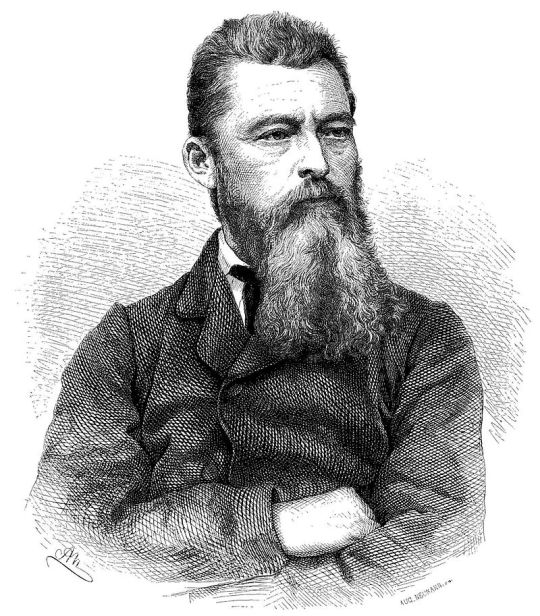
«El ser divino es la esencia humana transfigurada mediante la muerte de la abstracción; es el espíritu separado del hombre. En la religión se libera el hombre de los límites de la vida; aquí abandona lo que le oprime, paraliza y afecta en forma repugnante; Dios es el sentimiento de sí mismo del hombre liberado de toda repugnancia; libre, dichoso y feliz se siente el hombre únicamente en su religión, solamente aquí vive a su manera y celebra su domingo».
Ludwig Feuerbach: La esencia del cristianismo. Editorial Trotta, págs. 145-146. Madrid, 1995.
TGO
@bocadosdefilosofia
@dies-irae-1
#esencia#esencia humana#dios#ser divino#religión#la esencia del cristianismo#feuerbach#ludwig feuerbach#humanismo#humanismo ateo#ateísmo#ateísmo antropológico#crítica a la religión#alienación#enajenación#teo gómez otero#materialismo
4 notes
·
View notes
Text

Feuerbach prese posizioni contro la destra hegeliana nel saggio "pensieri sulla morte e sull'immortalità". Negò l'immortalità del singolo e ammise tale fenomeno solo in riferimento all'umanità come elemento collettivo (si ricollega alla filosofia araba del medioevo). Per Feuerbach, infatti, non è Dio a creare l'uomo; ma il contrario: l'uomo pone fuori da sé (aliena) i suoi desideri, le sue qualità e le sue aspirazioni e costruisce la divinità. La religione, dunque, altro non è che una proiezione dell'essenza dell'uomo.
#filosofia#storia della filosofia#filosofi#pillole di filosofia#modernità#filosofia moderna#cristianesimo#dio#libri#libri da leggere#Feuerbach#Destra#Sinistra#Ateismo#Religione#Divinità#Uomini#Umanità#Alienazione
3 notes
·
View notes
Quote
"El ser-universal y el ser-uno, en su contradicción ontológica, son el explosivo que no tiene sino que esperar el pensamiento que examina, como a su detonante, para que estalle. El pensar dialéctico, se demuestra, así, como una fuerza inquietantemente revolucionaria. Ha sido a partir de un pathos muy diferente el que se ha dicho en contra de la revolución del modo de pensar tal como acontece en el filosofar que lo importante no es comprender el mundo, sino 'transformarlo'. Allí donde se sirve de esta manera el hombre de acción contra el pensador, no se tiene ya noción alguna de la dimensión en la que la filosofía mueve su esencia. Esto es tan válido hoy como antaño."
Eugen Fink Hegel: Interpretaciones Fenomenológicas de la Fenomenología del Espíritu
#eugen fink#hegel#Hegel: Interpretaciones Fenomenológicas de la Fenomenología del Espíritu#Marx#Feuerbach#dialéctica#dialéctica materialista#marxismo#materialismo#idealismo
2 notes
·
View notes
Text




The Feuerbach Family is well known in Germany for their cultural heritage. Johann Paul Anselm Ritter von Feuerbach, is the father of the philosopher Ludwig Feuerbach (“You are what you eat.”) the painter Anselm Feuerbach and the legal guardian and advocate of Kaspar Hauser. Both of them died within a year under mysterious circumstances, but his psychological and juridical studies are seen as fundamental for following penology. Feuerbach proclaimed basic judiciary rights, abolished the torture doctrine in Bavaria and his main purpose was also to underline that the threat of penalty could prevent crimes (it is indeed difficult to find humanistic solutions for law and order… Big topic for discussions!)
This edition of 1840 is the twelfth edition published by Dr. Mittermeier. Marbled cover and half-leather spurs. While cross reading I recognised remarks on necrophilia ⚰️🚫 Super macabre!
#European jurisprudence#history of law#historical law researches#Feuerbach#Kaspar Hauser#penology#study#law#justice#criminalistic#criminology#antiquarian book#antiquarian#coffee aesthetic#19th century#19th century literature#literature#German literature#law literature#psychology of criminals
3 notes
·
View notes
Text
Ludwig Feuerbach:
"Religion is the self-consciousness and self-feeling of man who has not yet found himself or has lost himself again."
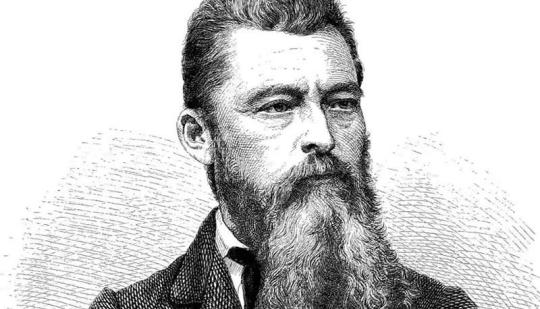
1 note
·
View note
Text
Alle origini della rivoluzione: la rivolta di Lutero
Lutero rompe con l’uomo medievale e col suo legame con Dio, influenzando in modo decisivo i “filosofi moderni” che avrebbero portato altra acqua al processo rivoluzionario.
Continue reading Alle origini della rivoluzione: la rivolta di Lutero

View On WordPress
0 notes
Photo


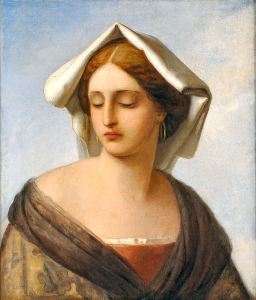
(via Anselm Feuerbach (1829 -1880), pittore neoclassico tedesco)
Presso l’Accademia di belle arti di Düsseldorf sviluppò un suo stile, ondeggiante fra la libertà di Rubens e la linea neoclassica.
0 notes
Text
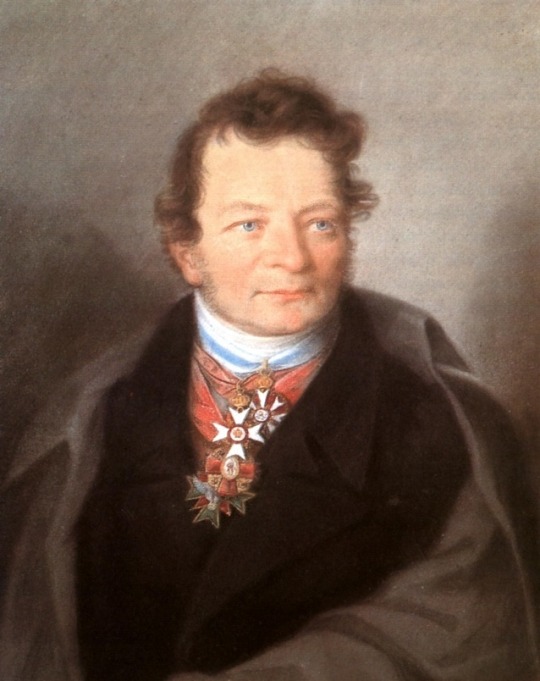
Paul Johann Anselm von Feuerbach, a German legal scholar.
Probably the best codification work of the Rhine Confederation period was the draft of a “General Civil Code for the Kingdom of Bavaria” from 1808-09, which was essentially based on the suggestions of Paul Johann Anselm von Feuerbach. By starting codification work, the Bavarian King Maximilian IV wanted to give in to Napoleon’s urging to introduce his code in Bavaria as well. In a report for the Ministry of Justice in 1808 “on the manner of introducing the Code Napoléon in a German country”, Feuerbach highlighted the main ideas of the Code Napoléon: freedom of the person; legal equality of subjects; equality of laws for all citizens of the state; freedom of property, as well as autonomy and independence of the state from the church in all civil matters. For him, the Napoleonic Code was a result of the French Revolution: “The purpose of French legislation was, on the one hand, to bring the Revolution to a complete end, and on the other, to perpetuate the beneficial results of the Revolution”.
Source: Werner Schubert, Der Code civil (Code Napoléon) in Deutschland und das Reichsgericht
#Werner Schubert#Schubert#Paul Johann Anselm von Feuerbach#Feuerbach#napoleonic era#code napoléon#napoleonic code#napoleonic#first french empire#Bavaria#Germany#Napoleon in Germany#napoleonic reforms#legal reforms#Napoleon the reformer#french revolution#frev#napoleon bonaparte#napoleon#19th century#history#Deutschland
7 notes
·
View notes
Text

Ruhende Nymphe by Anselm Feuerbach (1870)
#anselm feuerbach#art#paintings#fine art#19th century#19th century art#neoclassicism#neoclassical#neoclassical art#painting#german artist#german art#mythology#greek mythology#bacchante#maenad#classic art
3K notes
·
View notes
Photo

"Dieu fleuve", portrait de vieil homme. Anselm Feuerbach (1829-1880). Nos reproductions rehaussées à la main apporteront à votre décoration d'intérieur un cachet unique. Elles feront également un cadeau de choix et original. D'abord imprimées sur du papier haute-qualité, nos reproductions sont ensuite rehaussées et colorisées à la main avec pastel, fusain, sanguine, pierre noire et même gouache selon les œuvres. Une déco sans pareil à un prix très abordable! 📐 Plusieurs formats 🖼 Possibilité d'encadrement 🚚 Livraison rapide dans le monde entier. 🇫🇷 Made in France Suivez-nous pour plus d'informations, promotions, offres spéciales, concours et plus encore. #homedecor #walldecor #oldmasters #decorationinterieur #drawing #dessin #art #cadre #artprint #interiordesign #decoration #oldmasterdrawings #wallart #classicaldrawing #dessinancien #decomurale #feuerbach #masterdrawing #tableau #frame #decohome #artmoderne #faitmain #rivergod #affiche #ideedeco #ideecadeau #dieufleuve #portrait #encadrement (à Paris, France) https://www.instagram.com/p/ClqcNS9NsIM/?igshid=NGJjMDIxMWI=
#homedecor#walldecor#oldmasters#decorationinterieur#drawing#dessin#art#cadre#artprint#interiordesign#decoration#oldmasterdrawings#wallart#classicaldrawing#dessinancien#decomurale#feuerbach#masterdrawing#tableau#frame#decohome#artmoderne#faitmain#rivergod#affiche#ideedeco#ideecadeau#dieufleuve#portrait#encadrement
0 notes
Text

Medea, 1873
Anselm Feuerbach
#Anselm Feuerbach#german art#classicism#art#painting#art history#fashion#portrait#1870s#19th century#medea#mythology#greek mythology
5K notes
·
View notes
Text
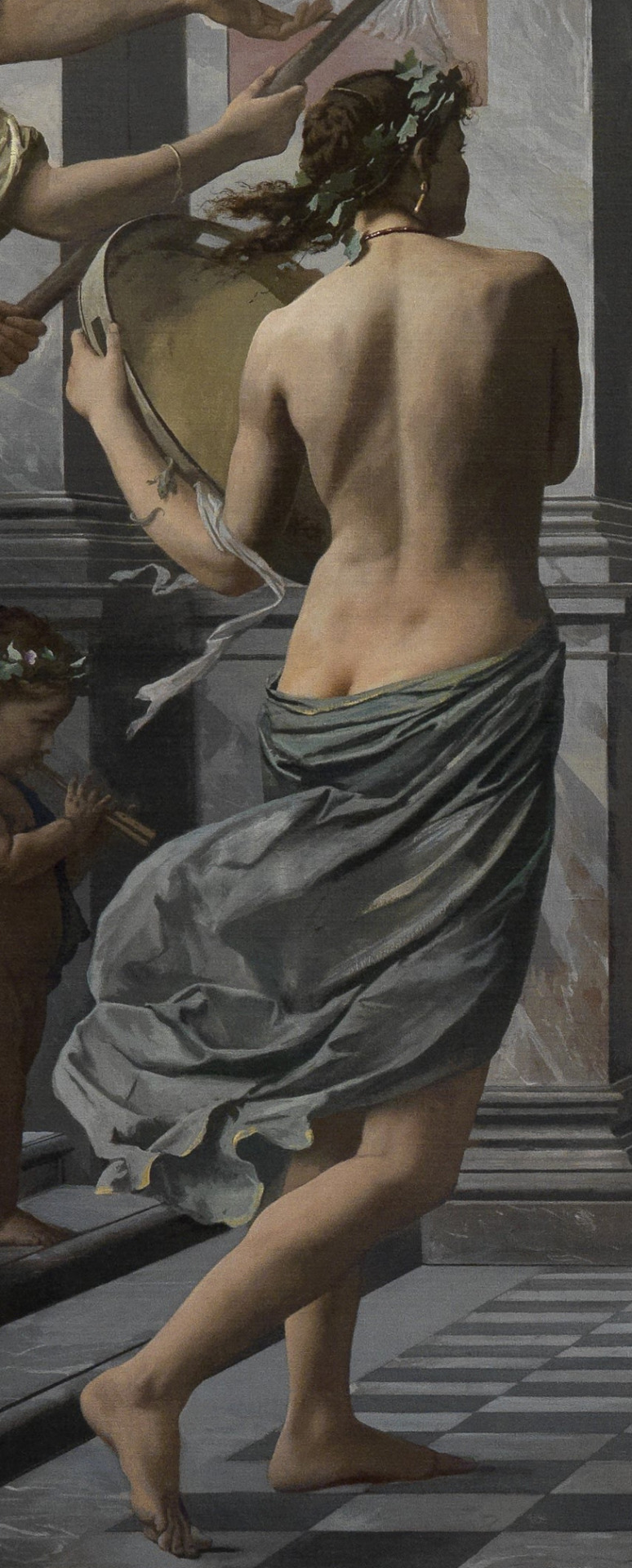
Anselm Feuerbach (German, 1829-1880)
Plato's Symposium, Detail, 1869
#Anselm Feuerbach#german art#mediterranean#greece#rome#greek#roman#cradle of civilization#classical art#greek mythology#plato#plato's symposium#1800s#revelry#female figure#female#woman#europe#european
2K notes
·
View notes